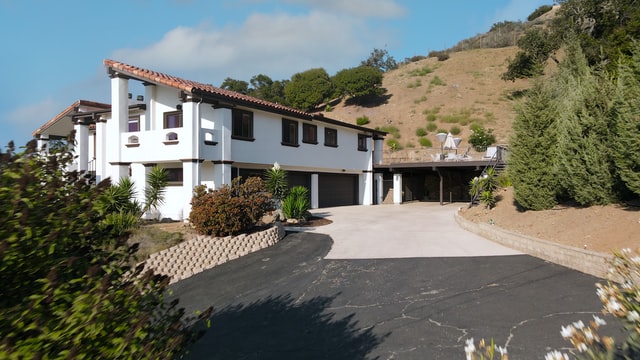Concrete Driveway Sealing
Sealing a concrete driveway is a simple and quick way to maintain the value of a home. Your concrete driveway is one of the first things people see when they drive up to your home. This is why it is a good idea to keep the concrete driveway looking as good as the day it was put in. Sealing the concrete driveway with a penetrating concrete sealer will give you years of protection for your concrete driveway.
How Concrete Driveways Deteriorate
It may not seem like it, but concrete is very porous. Water penetrates concrete very easily. Why do you think there is such a problem with basement walls leaking? Water that penetrates and expands from freezing does most of the damage to concrete. This is because the water expands 9% in volume when it freezes. This expansion can physically break the concrete bonds, causing it to flake, pit, spall and crack. Sealing the concrete reduces the amount of water that penetrates into the concrete.
De-icing salts also do damage to concrete driveways and sidewalks. These salts attack the surface layer of concrete and the steel reinforcement inside the concrete. When de-icing salts are applied, the melted water can enter the concrete and then refreeze as the temperature drops. Not to mention the corrosion to the reinforcing steel within the concrete because of the salts.
Sealing the concrete with a penetrating concrete sealer reduces water and salt uptake and the number of freeze-thaw cycles the concrete goes through.
Penetrating Concrete Sealers
Concrete driveways are high-traffic areas, with cars entering and leaving and kids using them for basketball courts. That is why your concrete driveway needs to have a penetrating sealer as opposed to a surface sealer.
A surface sealer is just that, it sits on the surface and does not penetrate. The surface sealer will wear away rapidly from use. Every time a car pulls in or someone bounces a ball on it, a little bit of the sealer is removed. Some surface sealers can even make the driveway slippery and dangerous when it rains or snows because it fills in the rough texture of the concrete.
On the other hand, a penetrating concrete sealer does just that, it penetrates below the concrete surface. Penetrating concrete sealers form a hydrophobic barrier against water and de-icing salt attacks. Because they are below the surface, they are protected from wear on the surface of the concrete. The natural texture of the concrete is maintained so traction and safety are not a concern. Finally, because the concrete sealer is below the surface, there is no shininess or gloss to the concrete.
If you are looking for more driveway tips, check out Fundamental Siteworks now!

